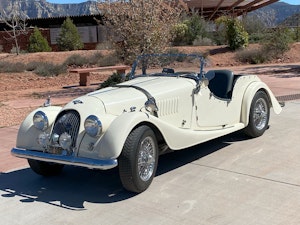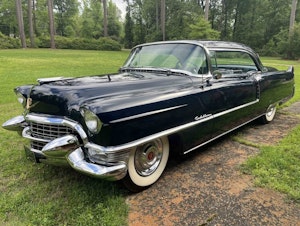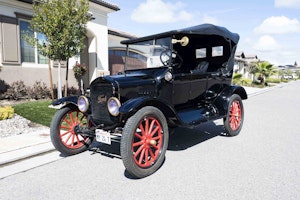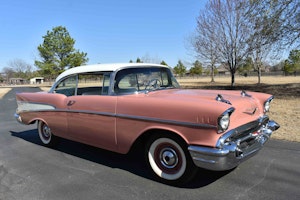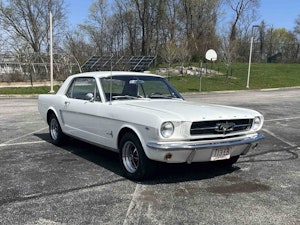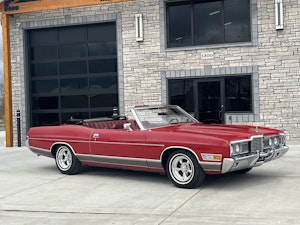Media | Articles
Taking another look at VW’s timeless advertising
The firm of Doyle Dane Bernbach, one of those Mad Men-style outfits which would later yield pride of place to new-generations firms like Chiat/Day and Wieden+Kennedy, was responsible for most of Volkswagen of America’s most memorable advertisements. Odds are, you’ve seen one of them, even if you don’t have even a minor interest in classic VWs. Starting in the late 1950s and continuing at least through the mid-1970s, they were very unique and clever, so much so that VW has brought this advertising style back a few times these past couple of decades. I re-discovered the following ads while going through vintage Time magazines collected way back when I was in grade school.
20200330171041)
My science teacher, Mr. Spilker, knew I was a car nut. He was too. At the time, circa 1992, he was still driving a light metallic blue 1967 Galaxie 500 two-door hardtop that he bought new, and he collected Ford dealer promotional model cars. He’s the one who got me hooked on those little models. So he’s to blame for my ever-growing promo collection, which continues to the present day. Well, him and Jim Smith, my buddy in Chicagoland, from whom I’ve bought a substantial portion of my collection! But I digress. He had a ton of ‘70s issues of Time at school back then, and allowed me to remove some (well a lot, ha ha) of the ads from them. I still have them after all of these years, and still love going through them. So I thought it would be fun to scan some of them in and share them with all you fine folks.
20200330171054)
Naturally, most of the early ads were for the ubiquitous Beetle, but as new models were added, they were given the same marketing treatment.
Marketplace
Buy and sell classics with confidence
20200330171104)
By 1971, you could get your Volkswagen in small, medium and large-relatively speaking. Personally, I’d have gone with the Squareback. Always loved those.
20200330171137)
Also in 1971, Volkswagen attempted to move more upmarket with the 411. It was available as a four-door sedan or a two-door wagon, and was the final all-new rear-engine Volkswagen model. Customers were not charmed, to put it mildly, but the 411 would survive through six years of modest sales and would also donate an engine to early models of the “VoPo” VW-Porsche 914—sold here, of course, without the VW badge.
20200330171146)
Volkswagen hoped that people used to a larger car would be interested in the 411 and subsequent 412 (Type 4), which were bigger and more plush than the Type 3 Fastback and Squareback. Much was made of the Type 4 being the first four-door VW.
20200330171152)
By the early ‘70s, the Type 3 was showing its age somewhat, but was still much more modern than the Beetle. The Type 3 was available in two-door fastback and two-door wagon (a.k.a. Squareback) models. There was also a Notchback, a two-door sedan, but it was not officially imported to the United States.
20200330171203)
Although the Type 3 was intended to replace the Beetle, that didn’t happen, and it was discontinued after ‘73. Ironically, the Beetle outlasted the Type 3 by about thirty years, all the way to when VW’s factory in Mexico built its last air-cooled Beetle.
20200330171251)
The clever advertising couldn’t help the fact that by the early ’70s, the Beetle was getting pretty long in the tooth. New, more efficient cars, some even with front-wheel drive, from the likes of Fiat, Datsun and Toyota, were making the Beetle look awfully dated.
20200330171316)
Volkswagen knew it had to come up with some new products, and it did, with the front-wheel drive Golf/Rabbit and Scirocco.
20200330171328)
Along with the forward-mounted, water-cooled engine and front-wheel drive came a new direction in advertising from DDB, which retained VW’s business into this century despite some clunkers like the “Fahrvergnugen” campaign. The new Rabbits and Sciroccos were a great success and pulled VW’s bacon out of the fire.
20200330171341)
The “classic” style ads remained for some models, though, as this one for the ’76 Transporter shown below proves. The VW may have been the practical choice, as long as you didn’t have to pull a boat.
20200330171356)
Volkswagen started the ’70s with an antiquated air-cooled, rear-engined lineup and closed out the decade with a trend-setting, water-cooled, front-engined lineup (save the Transporter and the Beetle cabriolet, in its last year). Yet the firm gradually lost touch with the American market. Today, VW is a global powerhouse but a niche brand in the States compared to its strong footing in Europe. DDB has been replaced and the company is looking for a new brand image. One has to wonder if perhaps Volkswagen should start by thinking small.
20200330171445)
